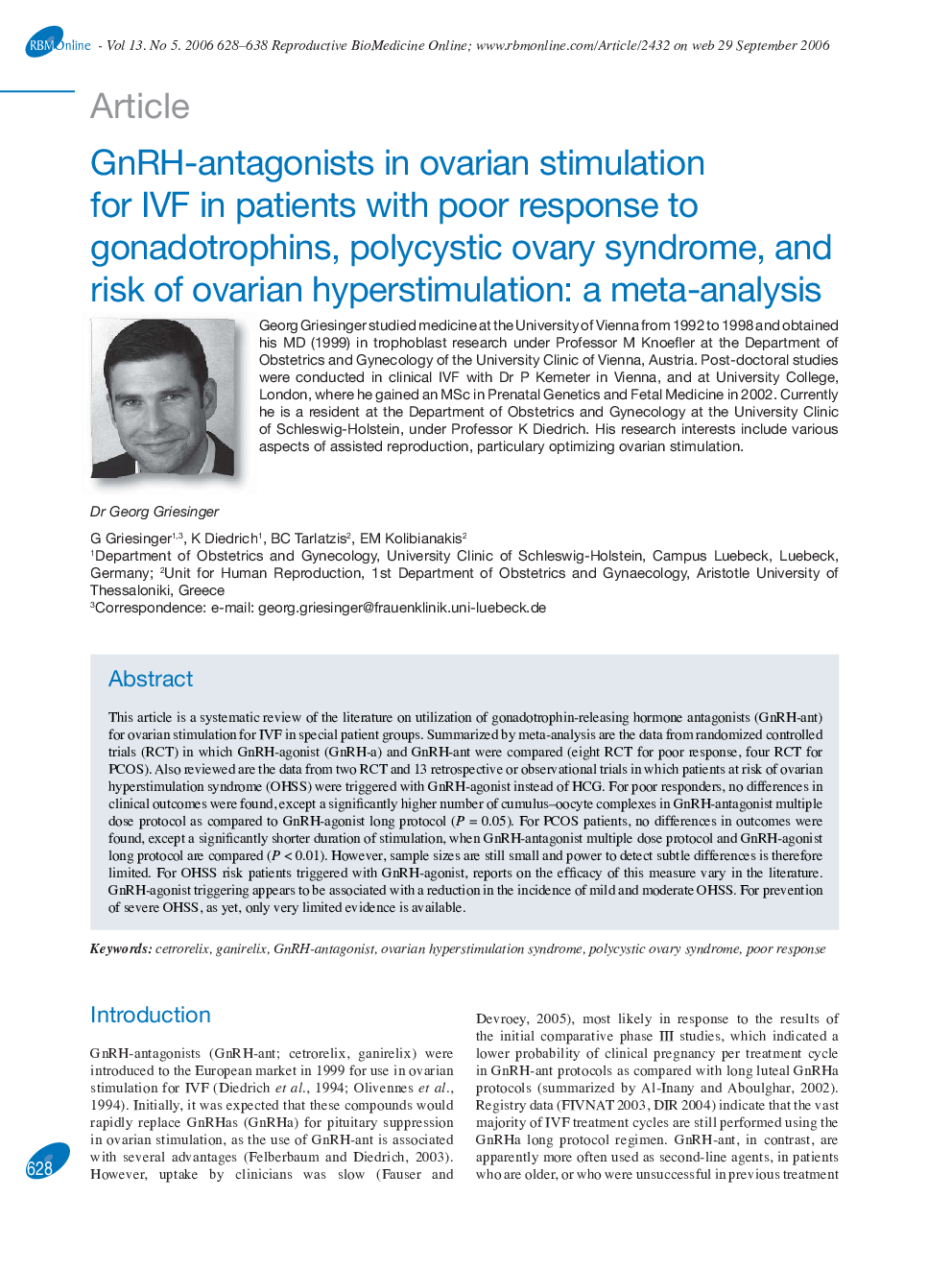| Article ID | Journal | Published Year | Pages | File Type |
|---|---|---|---|---|
| 3973535 | Reproductive BioMedicine Online | 2006 | 11 Pages |
This article is a systematic review of the literature on utilization of gonadotrophin-releasing hormone antagonists (GnRH-ant) for ovarian stimulation for IVF in special patient groups. Summarized by meta-analysis are the data from randomized controlled trials (RCT) in which GnRH-agonist (GnRH-a) and GnRH-ant were compared (eight RCT for poor response, four RCT for PCOS). Also reviewed are the data from two RCT and 13 retrospective or observational trials in which patients at risk of ovarian hyperstimulation syndrome (OHSS) were triggered with GnRH-agonist instead of HCG. For poor responders, no differences in clinical outcomes were found, except a significantly higher number of cumulus–oocyte complexes in GnRH-antagonist multiple dose protocol as compared to GnRH-agonist long protocol (P = 0.05). For PCOS patients, no differences in outcomes were found, except a significantly shorter duration of stimulation, when GnRH-antagonist multiple dose protocol and GnRH-agonist long protocol are compared (P < 0.01). However, sample sizes are still small and power to detect subtle differences is therefore limited. For OHSS risk patients triggered with GnRH-agonist, reports on the efficacy of this measure vary in the literature. GnRH-agonist triggering appears to be associated with a reduction in the incidence of mild and moderate OHSS. For prevention of severe OHSS, as yet, only very limited evidence is available.
